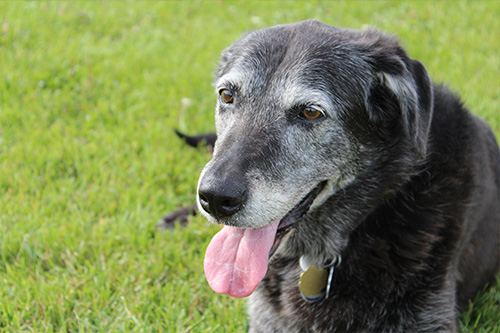
As dogs and cats reach their senior years, their health and well-being tend to require more attention and some special care. We recommend that healthy senior dogs and cats visit the veterinarian every six months.
The age when your pet is considered a senior will vary depending on their breed, lifestyle and individual traits. Generally, smaller breeds of dogs live longer than larger breeds, and cats live longer than dogs. Beyond that, timing of life stages and lifespan will vary with each individual. As a rough rule of thumb, some small dog breeds may be not be considered senior until 9-11 years, while giant breeds may be classified as seniors at ages as young as five. Cats typically become senior by 10-12 years of age.
Regular senior wellness visits will help your pet remain as fit and healthy as possible through its senior life stage. During a senior wellness visit your veterinarian will do a physical exam of your pet, checking the condition of their body, skin and coat, looking at their eyes, ears and teeth, and listening to their heart and breathing. They will also talk with you and will want to hear about how your pet is doing and if you’ve noticed changes in their activity or behaviour, their appetite and thirst, or any signs of pain, anxiety, sensory loss or confusion. They will often suggest doing some lab work, especially where there are known chronic conditions that are being monitored or treated. These actions will provide the best chance to catch and delay the onset or progression of diseases and detect problems such as organ failure and osteoarthritis when they’re easier to treat or manage. We believe that your pet deserves the best care possible to help them age gracefully and enjoy their senior years. Remember – age itself is not a disease, it is another life stage that brings with it the need for some adjustments and accommodation but that also brings its own joy as you continue to share companionship and loyalty when they need it most.
If a chronic condition or disease is identified, your vet will develop a treatment plan. Chronic conditions we commonly treat in senior pets include osteoarthritis; kidney, heart, and liver disease; tumors and cancers; periodontal disease; and hormone disorders such as diabetes and thyroid imbalance. We can also help with other wellness considerations related to aging that are more generalized but no less important, such as weight and mobility changes, chronic pain, dulling and loss of senses, anxiety, and generally declining health.

